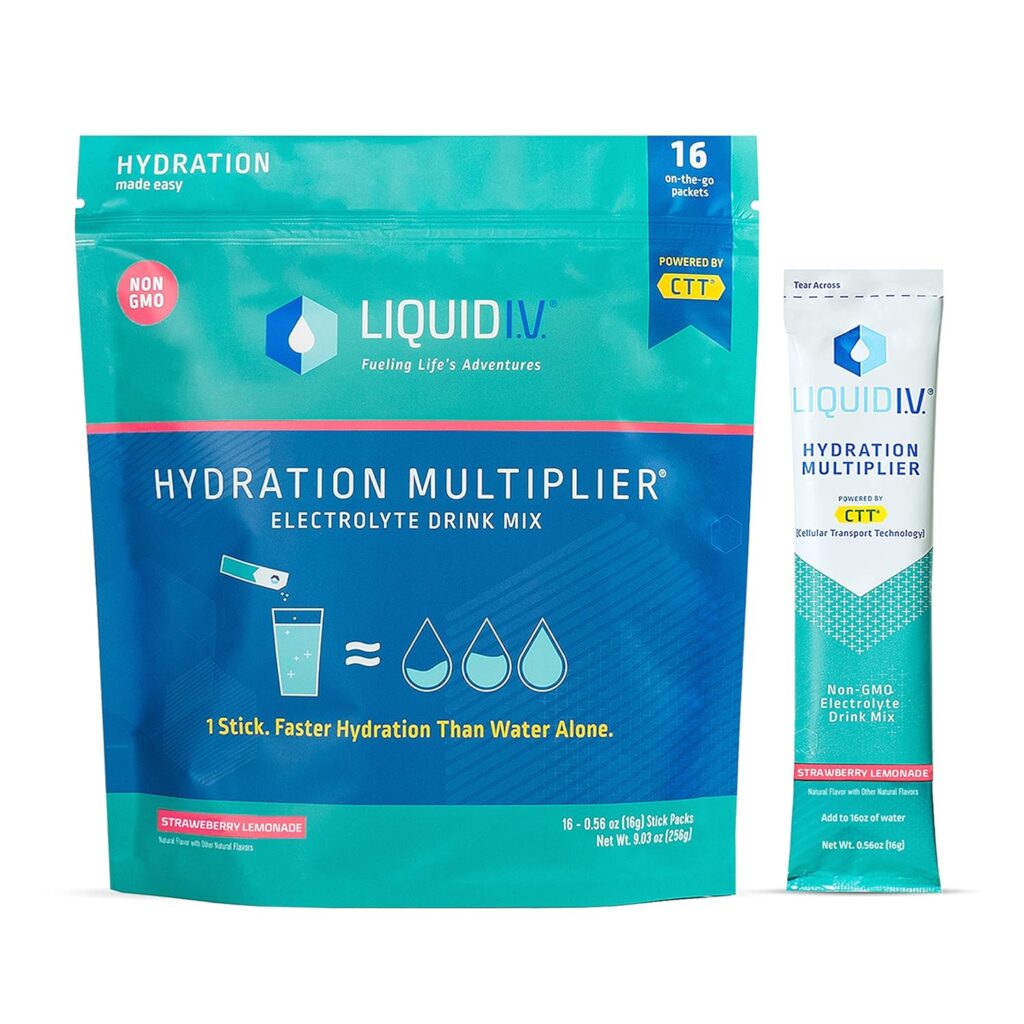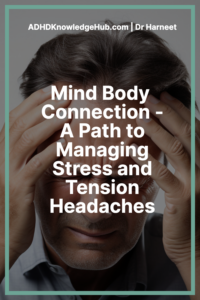Mind Body Connection – A Path to Managing Stress and Tension Headaches
Ever noticed how your body tenses up during stressful times? For my husband, this realization came hard and fast, thanks to a daily battle with tension headaches, nudged along by the hustle and bustle of modern life. But here’s the twist: he found a silver lining through meditation and a deeper understanding of the mind-body connection. And if you’re juggling the extra layer of ADHD, you’ll want to lean in closer because this journey is as enlightening as it is healing.
The Journey Begins
It all started when I noticed my medicine cabinet was stocked with Nurofen like a mini pharmacy. Stress was the unwelcome guest in my life, leading to daily headaches. But the real change came not from a pill bottle but through meditation. This was echoed in my husband’s experience, a high-flyer in finance, who discovered that meditation not only eased his tension headaches but also boosted his productivity.
Understanding the Mind Body Connection
Stress isn’t just a mental burden; it manifests physically, locking our muscles in a tight embrace. The neck, shoulders, and yes, even the buttocks tense up, setting the stage for tension headaches. But why does this happen? It’s the body’s way of saying, “Hey, I’m on overload here; let’s dial it down a notch.”
The Physical Manifestations of Stress
Diving deeper, let’s talk specifics. That stiff neck, those raised shoulders, the clenched jaw – they’re all signs of the body’s stress response. It’s as if your body is bracing for impact, a holdover from our fight-or-flight instincts.
The Locking Mechanism
When stress is constant, the body’s muscles may remain in a semi-contracted state for extended periods. This “locking” mechanism is the body’s way of preparing to respond to stress but can lead to muscle strain, fatigue, and pain if not addressed. Over time, this sustained muscle tension can reduce blood flow to the affected areas, leading to a buildup of waste products that can cause pain and further muscle contraction, creating a vicious cycle.
Headaches as a Signal
Headaches can indeed be the body’s way of signaling the need to address this underlying tension and stress. Tension headaches, the most common type of headache, are directly linked to muscle tension in the neck, shoulders, and scalp. The muscle tension can lead to the constriction of blood vessels, reducing blood flow and oxygen to the brain, resulting in a headache.
The body is essentially communicating that it’s time to relax and release the built-up tension. Awareness of these signals is crucial in taking steps to manage stress and prevent the escalation of tension into painful symptoms.
Meditation: Mind body connection
Meditation was my game-changer. It taught me to listen to my body, to recognize when tension was creeping in and, importantly, how to let it go. This wasn’t about achieving some Zen state but about practical steps to manage stress.
Starting Small with Meditation
If meditation sounds daunting, fear not. Starting with just a few minutes a day can make a difference. Focus on your breath, feel where your body holds tension, and gently release it.
Recognizing the Signs of Tension
Being aware of tension is half the battle. Notice when your shoulders hitch up during a stressful email or when your grip tightens on the steering wheel. That awareness is your first step toward relaxation.
The Role of Mindfulness in Managing ADHD
For those with ADHD, the constant barrage of stimuli can make stress management seem like a Herculean task. But mindfulness can be a powerful ally, helping to calm the mind and reduce sensory overload.
Mindfulness Techniques That Work
Practices like mindful breathing or engaging in a single task with full attention can be particularly beneficial. These techniques offer a way to center yourself amidst the chaos.
My Husband’s Story – Mind body connection
My husband’s journey from constant headaches to a more peaceful and productive life is a testament to the power of mindfulness. In a high-stress job like finance, finding that calm can feel like a miracle. But it’s a miracle that’s accessible with practice. He used to have headache tablets at work, in the car and at home. He has not needed them for several months, and he also noticed his effectiveness and productivity have increased significantly. Being conscious of muscles tightening up and letting go, along with meditation, has changed his life.
From Tension to Tranquility
The transformation wasn’t overnight, but the effects were profound. Less tension meant fewer headaches, better focus, and a happier life. It’s a clear message: taking time to unwind isn’t just about feeling good; it’s about performing at your best.
Incorporating Physical Activity – Mind body connection
Exercise is another critical piece of the puzzle. It releases tension, yes, but it also boosts mood and energy levels, creating a positive feedback loop that supports overall well-being.
Exercise Options for Every Level
Whether it’s yoga, walking, or hitting the gym, find an activity that you enjoy. The goal is to get moving, release tension, and have fun doing it.
Diet and Hydration: The Overlooked Heroes
What we eat and drink plays a significant role in how we handle stress. A balanced diet and staying hydrated can bolster your stress-fighting arsenal.

Liquid I.V. Hydration Multiplier – Strawberry Lemonade – Hydration Powder Packets | Electrolyte Drink Mix | Easy Open Single-Serving Stick | Non-GMO |16 Sticks
Foods to Favor and Avoid
Lean proteins, whole grains, and plenty of fruits and vegetables support a healthy mind and body. And while it’s tempting to reach for caffeine or sugar in stressful times, these can actually heighten anxiety.
Creating a Supportive Environment
Finally, take a look around you. Your environment can significantly impact your stress levels. Creating a space that feels calm and organized can help keep stress at bay.
Conclusion: Embracing the Mind Body Connection
My husband’s journey from daily headaches and reliance on painkillers to a more mindful and tension-free life has been transformative. By understanding the mind body connection and embracing practices like meditation and mindfulness, even those of us with ADHD can find relief from stress and tension headaches. It’s a path worth exploring, one breath, one step at a time.
FAQs
- Can meditation really help with tension headaches? Yes, by reducing stress and helping you become more aware of when and where your body holds tension, meditation can significantly reduce the frequency and intensity of tension headaches.
- How long does it take to see benefits from meditation? While individual experiences vary, many people notice improvements in stress levels and tension within a few weeks of consistent practice.
- Are there specific diets that help reduce stress? While no one-size-fits-all diet exists for stress reduction, focusing on whole foods, reducing caffeine and sugar intake, and staying hydrated can help manage stress levels.
- How can I make meditation a habit if I have ADHD? Start with short sessions and use tools like guided meditations or apps designed for ADHD. Consistency is key, even if it’s just a few minutes a day.
- Can exercise replace meditation in managing stress? Exercise is a powerful stress reliever but works best in conjunction with practices like meditation and mindfulness for a holistic approach to stress management.

*We may earn a commission for purchases made using our links. Please see our disclosure to learn more.




